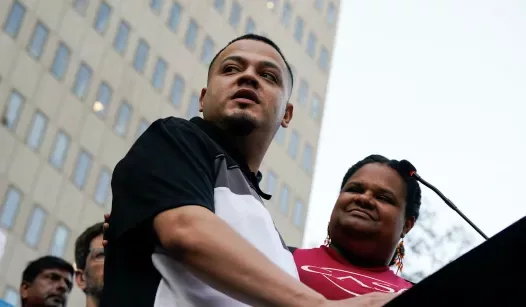Abrego Garcia’s recent release from custody appears to be a temporary reprieve, as reports indicate he may soon be deported to Uganda. This situation has sparked significant discussion among political analysts and human rights advocates, highlighting the complexities of immigration policies and the implications for individuals facing deportation.
Garcia’s case is emblematic of broader issues within the U.S. immigration system, where the intersection of legal proceedings and human rights raises critical questions. Many are concerned about the treatment of individuals in similar situations, particularly those who may face persecution or violence upon returning to their home countries.
As the political landscape continues to evolve, the implications of Garcia’s potential deportation extend beyond his personal circumstances. It underscores the need for a comprehensive approach to immigration reform that prioritizes human rights while addressing national security concerns. The ongoing debate surrounding immigration policy in the United States remains a contentious topic, with advocates on both sides calling for changes to current practices.
In light of Garcia’s situation, it is vital for citizens to engage in discussions about immigration reform and the treatment of individuals within the system. Understanding the nuances of these cases can help foster a more informed and compassionate dialogue about the future of immigration in the United States.
